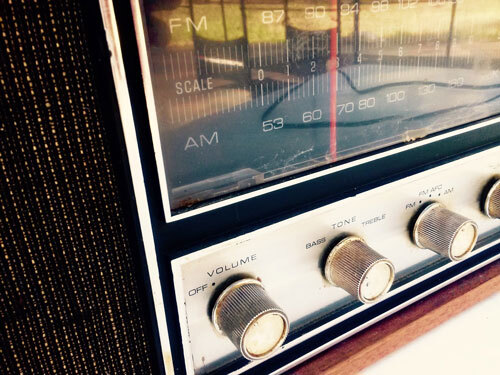
(DonnaCR/Pixabay)
Was the Clear Channel memo an edict, a recommendation, or an edict dressed up as a recommendation?
When the list of 162 “lyrically questionable” songs first emerged less than a week after the 9/11 attacks, rumors started flying about the ulterior motives behind the list.
Did the company email it to program directors? Did the company force them to follow it? Were these rules or guidelines?
In a 2001 Slate article, Clear Channel Regional Senior VP of Programming Jack Evans characterized the list as one that programmers around the country created organically. To hear it from Evans, it was simply crowdsourced, though it was eventually emailed to stations around the country.
“After and during what was happening in New York and Washington and outside of Pittsburgh, some of our program directors began e-mailing each other about songs and questionable song titles,” he told the outlet, adding, “There were a substantial amount of songs in question that I’m glad the [program directors] brought up so we didn’t air them at a very, very sad time.”
The company had a high-level executive essentially confirming that the list existed in an on-record interview, and a long list of songs clearly emerged from somewhere. But as the story picked up steam in the media, Clear Channel suddenly tried to pour cold water on it. In a press release from September 18, 2001, the firm wrote:
Clear Channel Radio has not banned any songs from any of its radio stations.
Clear Channel believes that radio is a local medium. It is up to every radio station program director and general manager to understand their market, listen to their listeners and guide their station’s music selections according to local sensitivities. Each program director and general manager must take the pulse of his or her market to determine if play lists should be altered, and if so, for how long.
“In the wake of this terrible tragedy, the nation’s business community is responding with a degree of hypersensitivity,” explained Mark P. Mays, President and Chief Operating Officer of Clear Channel. “Even some movie companies have altered some of their release schedules in light of the mood in America today. Clear Channel strongly believes in the First Amendment and freedom of speech. We value and support the artist community. And we support our radio station programming staff and management team in their responsibility to respond to their local markets.”
This explanation was enough for Snopes, which labeled the idea of a ban “false” on its website that year and took the outlet at its word.
But Slate further noted that a radio-industry website characterized the list as an “internet rumor,” which suggests that some of Clear Channel’s critics took advantage of the situation to drum up a list designed to make the company look bad, which isn’t what happened.
In a follow-up article titled “Profiles in Ass Covering,” the outlet suggests that the press release appeared to be threading a needle:
If you read the press release carefully, it appears Clear Channel is weaseling out of sticky situation: “Clear Channel Radio has not banned any songs from any of its radio stations.” Right. They didn’t ban any songs, they simply asked that stations not play them.
And people with awareness of the industry noted that a soft edict from such a dominant company represented a hard edict in practice. As journalist Steven Wishnia wrote for the music magazine LIP in 2001: “Who in a job as highly coveted and easily replaceable as radio DJ is going to defy a ‘suggestion’ from on high about what is ‘inappropriate’? They don’t have to spell out Y-O-U W-I-L-L B-E F-I-R-E-D.”
In some ways, the situation is comparable to that of some of the more questionable corporate strategies we’ve seen during the COVID-19 crisis, where leaders brought up in an old-school way have tried to ignore the advice of public health officials out of an interest in not shaking up the traditional status quo. For example, the cable company Charter Communications resisted efforts to have employees work from home in part because of the apparent mindset of CEO Thomas Rutledge, who thinks employees “will just screw around at home,” as one anonymous employee put it to Gizmodo. Hundreds of the company’s employees have since gotten sick.
In a memo acquired by TechCrunch, Rutledge wrote, “While some back office and management functions can be performed remotely, they are more effective from the office.”
When someone finally puts the COVID-19 era into the history books, Rutledge’s call will likely be seen as an immense failure of leadership.
Certainly, Clear Channel was not in the exact same kind of situation, but in a lot of ways it reflects a similar sort of awkwardness between corporate culture and dramatic world events. What seems well-meaning inside of an internal email chain suddenly sounds a lot worse when it’s exposed to the outside world.
When a corporate culture suggests that you shouldn’t play Rage Against the Machine after a national tragedy, does the suggestion feel like something an employee can ignore? Or is it a threat of sorts? Because, in many ways, that’s what this whole saga comes down to.
Clear Channel, by sheer shape of corporate culture, set the expectation that a suggestion could be seen as an edict, so that’s how it was taken.